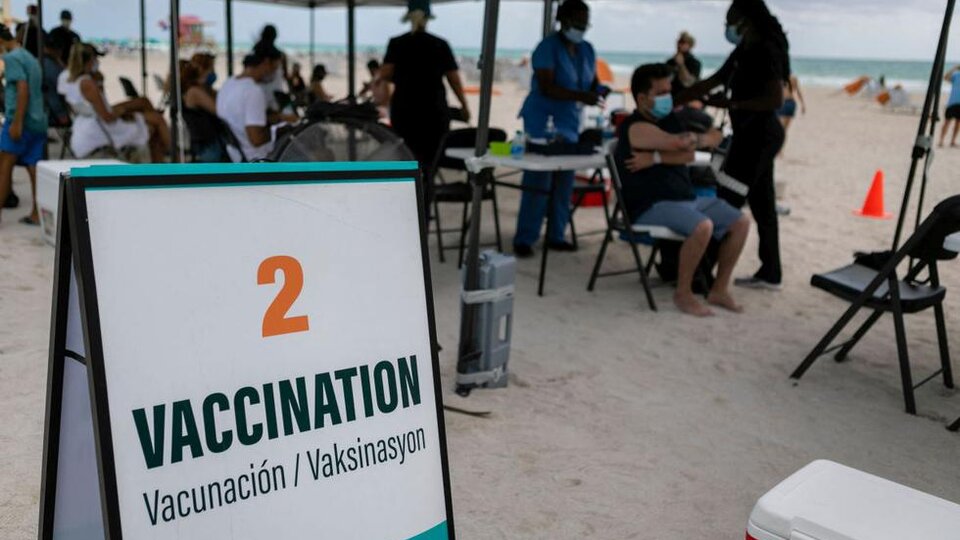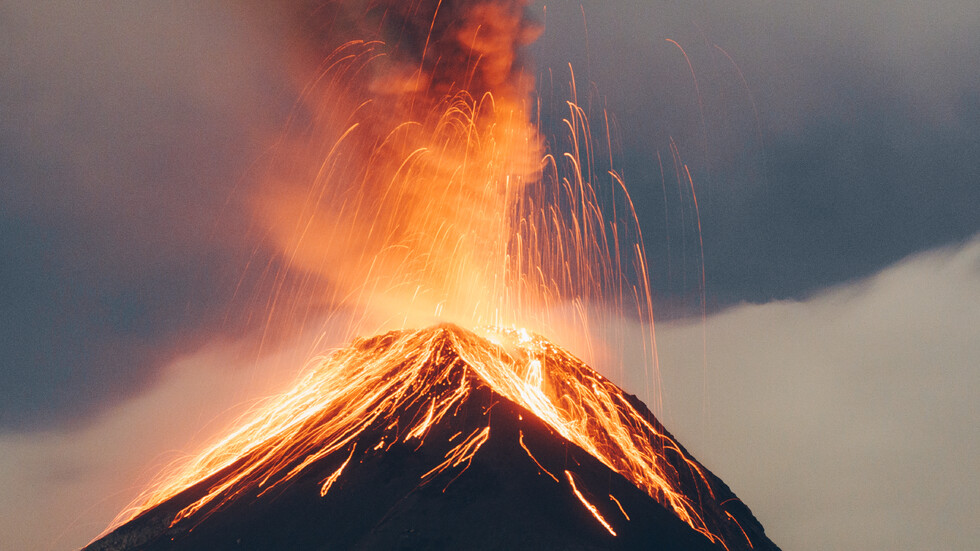From Washington, DC.“If we have a surplus, we will share it with the rest of the world”, Joe Biden said last March, when he announced millions of doses to be distributed within the United States. Two months later, the North American country has, for weeks, vaccines piling up in pharmacies to which it is no longer necessary to take turns. He has the luxury of trying to convince with prizes of millions of dollars those who have yet to receive the puncture. The global image of the pandemic could not have a greater contrast: while New York and Washington eliminate security measures inside bars and restaurants and Miami vaccinates even on the beach, crematoriums in India cannot keep up with the number of deaths by coronavirus.
The United States Government faces questions inside and outside the country for the vaccine nationalism that unfolds as other regions of the world go through a critical moment of the pandemic. In that context, Biden said last Monday that the United States will send 20 million more vaccines against Covid abroad than it had already announced. This will raise the number of doses that the North American country plans to donate to 80 million. “There will be more vaccines than any country has shared to date, five times more than any country, more than Russia and China, which have donated 15 million doses”, He added.
With the comparison, Biden echoed another persistent criticism, but one that comes from the side of the opposition: while the government continues to prioritize the campaign in the United States, His two main rivals are months ahead of him in vaccine diplomacy. Not with donations, but with the sale of millions of doses in Asia, Africa and South America. “You know, there is a lot of talk about the influence in the world of Russia and China from the vaccine. We want to lead the world with our values ”, the president justified himself.
In the week, the Republican Mitt Romney, a senator from Utah, urged the government to speed up delivery of vaccines to the countries that need them most. In a paper To the State Department, in charge of the country’s diplomacy, the former presidential candidate questioned the delay in the distribution from a strategic and national security perspective: “While Russia and China have taken action on this matter, the United States seems to be still in the process of deciding what to do. “
For Romney, not only the 80 million doses announced so far are not enough, but it is also necessary to open a dialogue with the countries and implement a strategy to distribute the vaccines to those nations. What the senator also wants is, above all, a calendar that allows knowing when the vaccines will arrive in each country. “I was shocked to learn that while China and Russia are shipping vaccines to countries in desperate need, the United States is still in the planning and prioritization stage and has yet to communicate in detail to the countries of the world when they can wait for the doses, ”he said in his letter.
According to the White House Press Secretary, Jen Psaki, the shipment of the American donation will happen at the end of June. The government did not give more details of how it will do it or to which countries it will be destined. “The president reaffirmed his commitment to leading an international and coordinated vaccination action,” the White House said only. It is known that 60 million will be AstraZeneca, doses produced in the United States, but that have not yet received authorization from the Food and Drug Administration and, therefore, cannot leave the country. The remaining 20 million will be from vaccines that are authorized (Moderna, Pfizer y Johnson & Johnson).
The Biden administration seeks “concrete commitments” from other governments and private sector partners to increase the availability of vaccines. But little is known about how the United States intends to help distribute vaccines globally or from which countries will benefit. Up to now, the clearest destinations for its excess were neighboring Mexico and Canada. South Korea will be added to the list, who will receive vaccinations for his army.
During a visit by the South Korean president, Moon Jae-in, to Washington, Biden announced this Friday that the United States will provide vaccines for about 550,000 soldiers of the Asian country. It also announced an agreement for Moderna and Novavax vaccines to be produced in South Korea.
The contrast with the rest of the world is obscene. After the Centers for Disease Control and Prevention To relax their recommendations on measures against Covid, cities such as New York and Washington eliminated the obligation to wear a chinstrap and enabled bars, restaurants and other establishments behind closed doors with no capacity limit.
More than 61 percent of adults have already received at least one dose of the vaccine in the United States. After reaching the peak of 3.38 million doses supplied per day last April, today the vaccination rate is barely 1.87 million daily doses and the vaccines are accumulated unused in the different centers and pharmacies that distribute them. .
The great challenge facing the vaccination campaign in the United States today is to reach those who distrust the vaccine or have had difficulty accessing it. The distribution was not the same for all sectors. Different analyzes show that black or Latino people have been vaccinated in a smaller proportion than they have in the number of coronavirus cases and in the total population. To encourage vaccination, states like New York, Maryland and Oregon announced lotteries with prizes in millions of dollars to be drawn among those who receive the puncture.
“The United States will continue to donate our surplus as suppliers deliver it to us,” the Biden administration said this week. But for now, vaccines that do not reach a local arm are only for foreigners who step on US soil. Texas and Florida exploit vaccine tourism and they begin to give doses to those who have the possibility of traveling from Latin America. The northern states also arrive from Canada, where only four percent of the population has the complete immunization scheme and it seems to be faster and easier to cross the border.
– .


